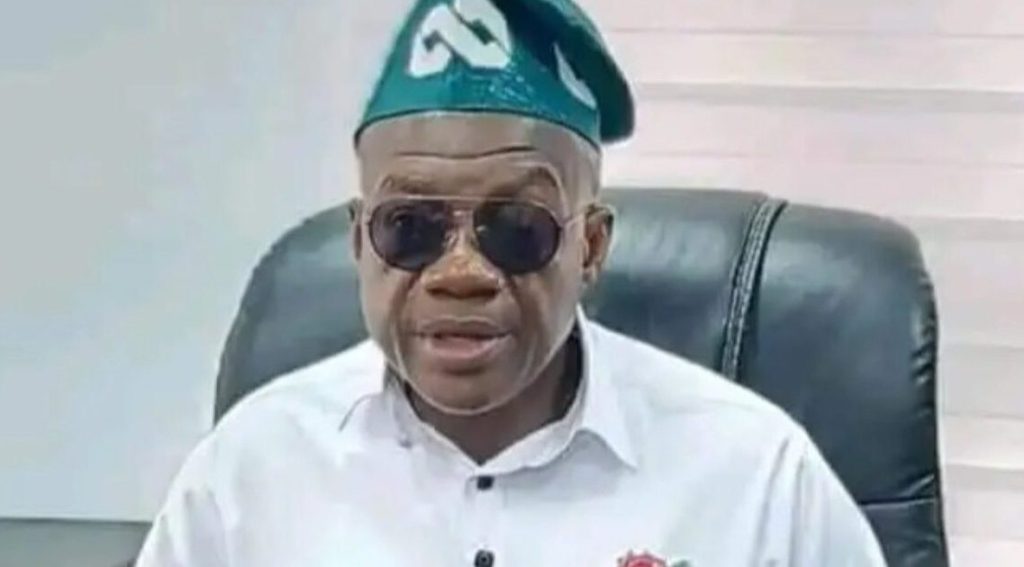The political landscape of Rivers State, Nigeria, has been embroiled in controversy following allegations of arson and financial impropriety leveled against the suspended Governor, Siminalayi Fubara, and his Chief of Staff, Edison Ehie. The catalyst for this escalating tension stems from claims made by the former Head of Service, George Nwaeke, who publicly asserted that he witnessed Fubara handing over a bag of money, purportedly intended for the bombing of the state House of Assembly. This explosive accusation has ignited a firestorm of reactions, with the Rivers State chapter of the All Progressives Congress (APC) seizing upon Nwaeke’s statement as validation of their long-held suspicions regarding Fubara’s alleged role in instigating political unrest within the state.
Chief Tony Okocha, the Chairman of the Rivers APC, wasted no time in connecting Nwaeke’s allegations to the broader political crisis engulfing Rivers State. He argued that Nwaeke’s account lends credence to the APC’s contention that Fubara is the architect of the state’s political turmoil, a situation that ultimately prompted President Bola Tinubu to declare a state of emergency to restore order and prevent a complete breakdown of peace. Okocha emphasized the significance of Nwaeke’s position as the former Head of Service, highlighting that his testimony carries substantial weight given his intimate knowledge of government operations and his ranking as the third-highest official in the state at the time. This, according to Okocha, elevates Nwaeke’s claims beyond mere hearsay, positioning them as credible insights from a highly placed insider.
Okocha further underscored the gravity of the allegations by referencing a Supreme Court judgment that labeled Fubara a “dictator,” asserting that this characterization aligns with the accusations of misuse of public funds and the alleged orchestration of violence. He contended that the alleged use of taxpayers’ money for illicit activities, particularly during a period of economic hardship, represents a blatant betrayal of public trust. The APC chairman’s invocation of the Supreme Court’s judgment serves to bolster his argument, framing Fubara’s alleged actions within a larger pattern of authoritarian behavior. This portrayal aims to paint a picture of a governor prioritizing personal agendas over the welfare of the citizens he was elected to serve.
In response to the accusations, Fubara’s camp, through his Chief of Staff, Edison Ehie, vehemently denied Nwaeke’s claims, suggesting that the former Head of Service was not in a sound mental state when he made the allegations. This attempt to discredit Nwaeke’s testimony by questioning his mental stability represents a common tactic in political disputes, aiming to deflect attention away from the substance of the accusations and towards the credibility of the accuser. However, Okocha and the Rivers APC have dismissed this defense, maintaining their confidence in Nwaeke’s account and urging a thorough investigation into the matter.
Okocha’s call for an investigation extends beyond Fubara and Ehie to encompass all individuals potentially involved in the alleged plot, whether directly or indirectly. He stressed the importance of holding those responsible accountable for their actions and ensuring that justice is served. Furthermore, Okocha condemned the attacks directed at Nwaeke following his public pronouncements, characterizing them as attempts to intimidate and silence him. He reiterated the APC’s commitment to acting as watchdogs in this matter, vowing to continue scrutinizing Fubara’s actions and advocating for transparency and accountability in the governance of Rivers State. This stance positions the APC as champions of good governance and defenders of the public interest, seeking to expose corruption and ensure that those in power are held responsible for their deeds.
The unfolding political drama in Rivers State remains highly charged, with the accusations against Fubara and his administration generating significant public interest and scrutiny. The APC’s unwavering pursuit of accountability and their insistence on a thorough investigation signal their determination to uncover the truth and bring those responsible to justice. As the situation continues to develop, the eyes of the nation remain fixed on Rivers State, awaiting the outcome of the investigations and the subsequent legal proceedings that may follow. The resolution of this controversy will undoubtedly have lasting implications for the political landscape of the state and could serve as a pivotal moment in the ongoing struggle for transparency and good governance in Nigeria.


